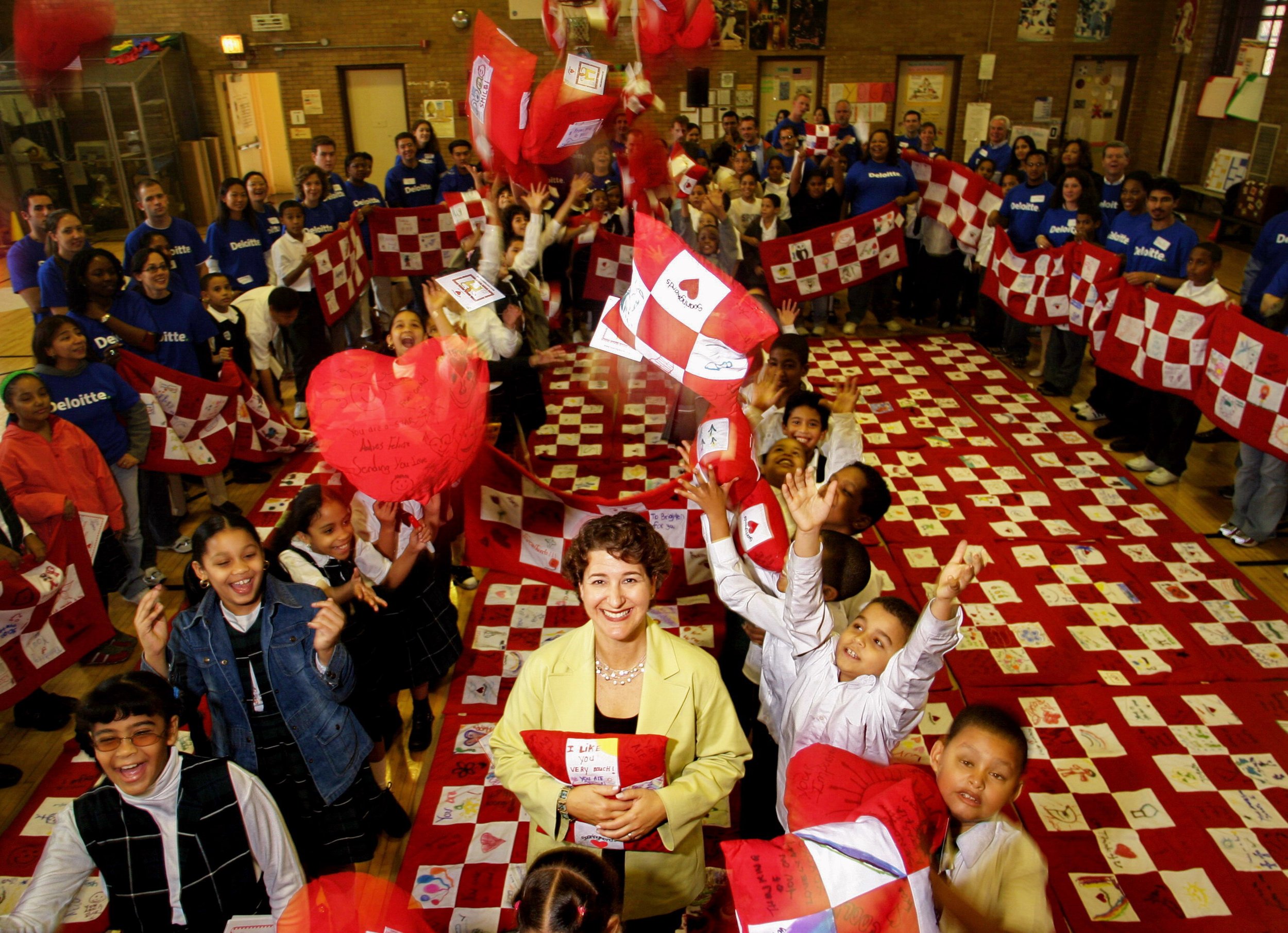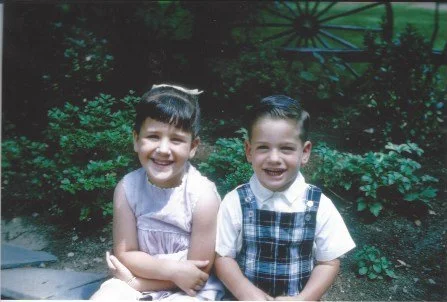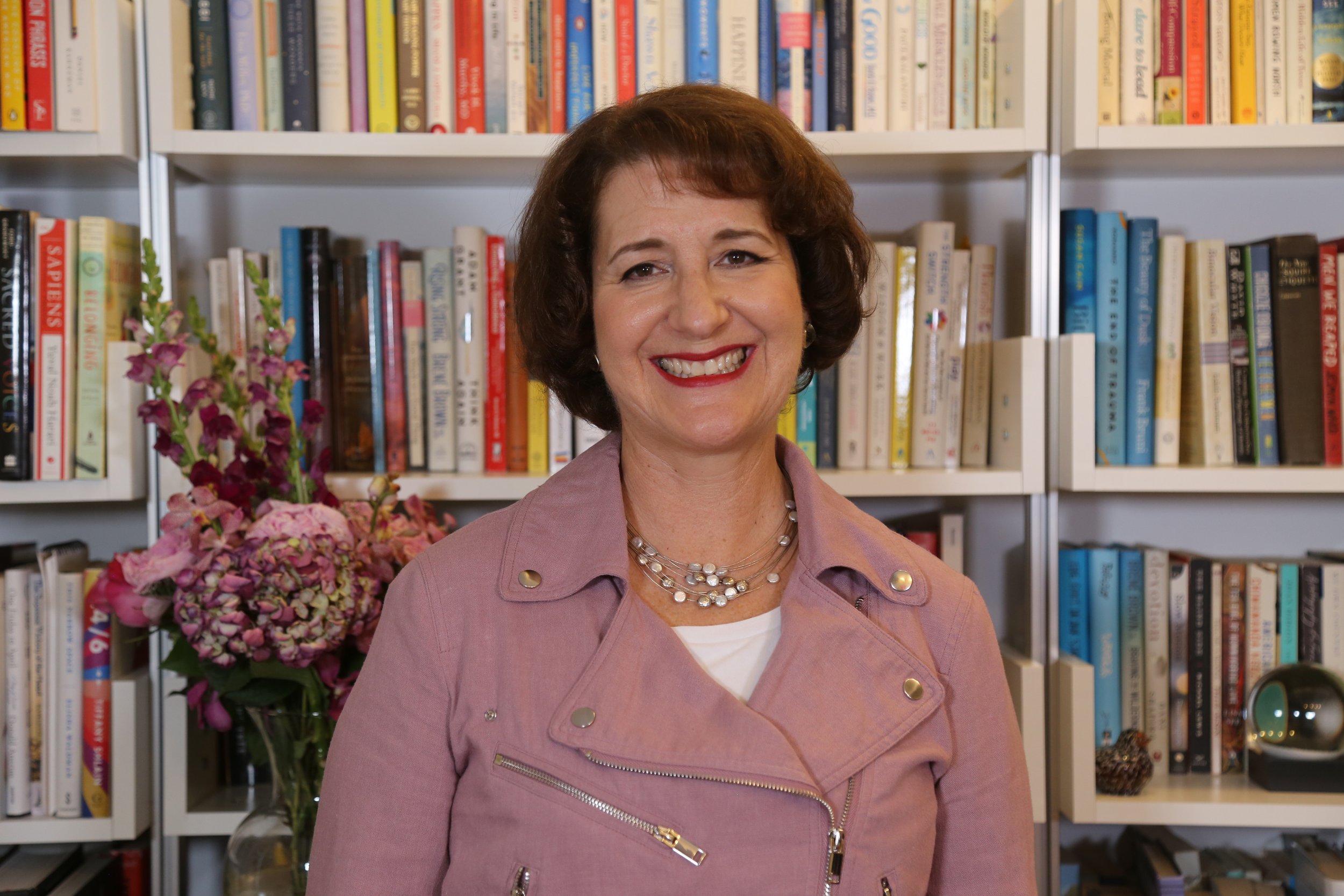Soaring into Strength: A Lifelong Journey to Help Others
/Photo Credit: Lisa Honig Buksbaum
When Lisa Honig Buksbaum (C’13) was a young girl, she watched her parents rush her younger brother to the emergency room during recurrent asthma attacks. Decades later, while her own son healed from a lengthy illness, she was inspired to launch Soaringwords®, a nonprofit committed to inspiring children, families, adults, seniors, and health care professionals to take active roles in self-healing to experience greater physical, emotional, and mental well-being.
Recently, Lisa wrote her memoir, Soaring into Strength: Love Transcends Pain, recounting these and other significant moments in her life to help others discover their own inner strength in the face of illness, loss, and setbacks. In this interview, conducted by the MAPP Magazine editorial team, Lisa shares her motivation for writing this book and opens up about how grace and humor became sources of courage in the most challenging moments of her life.
Your memoir chronicles your experiences protecting your brother when you were young and later shows how you channeled this protective instinct to reach hundreds of thousands of people struggling with illness. Does the work you do today remind you of your younger self?
In my 22 years of leading Soaringwords—the nonprofit devoted to helping children, families, adults, and health care professionals take active roles in self-healing—I have come to see the world as two distinct camps. The first camp I call “tourists.” These are fortunate folks who have not yet experienced trauma, setbacks, medical challenges, or loss. Then, there is the second camp that is part of the club no one wants to be in. Often, it’s a matter of time until most of us join this camp of people who have experienced chronic or serious illness or endured a major life difficulty, because these experiences are part of life.
Lisa and her brother, Gary. Source: Lisa Honig Buksbaum
My first encounter with major illness occurred in childhood when my younger brother, Gary, was diagnosed with severe childhood asthma. I remember many times when his inhaler didn’t work and watching my parents carry his limp body to the car to rush him to the hospital. Everything I do today reminds me of that younger version of myself who had to learn to be good in a crisis. While it was emotionally challenging to watch my sibling be ill, I now see how it deepened my compassion for others and increased my appreciation for health. I learned that life is unpredictable and we don’t know what struggles someone is going through under the surface; that difficult situations can give us the opportunity to show up with empathy; and that joyful moments should never be taken for granted.
At the time, though I didn’t have the positive psychology language and knowledge I now possess, the lessons were there and they had a profound impact on shaping who I am today. I hold onto those lessons every day in my work at Soaringwords. Hindsight is 20/20 in that sense and connecting the dots of the significant experiences through my life is really at the heart of why I wrote my memoir to show this progression from trauma to self-actualization. It’s fulfilling to know my work has helped more than 500,000 people experience greater physical, emotional, and mental well-being.
You vividly describe what it was like to learn of your brother’s sudden death while your father was battling cancer and your son was critically ill. This trifecta of hardships could have led to depression. Now that you are a positive psychology practitioner, what skills and behaviors can you identify that served you during that pivotal time?
I thought that my world imploded when these three experiences happened. Instead, I discovered I was stronger than I could have imagined. This was a vital part of the book and I chose to share about the worst times of my life to demonstrate endurance, even when you feel irrevocably damaged. This is how I felt when, in just ten months, my beloved brother died suddenly from an asthma-induced heart attack, my father was battling lymphoma, and my son was catastrophically ill.
During this time, cultivating a support network was essential. Dr. Jane Dutton, my dear friend and mentor, has conducted research on high-quality connections where people share nourishing, generative connections based on mutual respect and support (Stephens, Heaphy, & Dutton 2012). When I lead Caring for Yourself, a caregiver workshop at Soaringwords, I invite people to create or activate a circle of support with the insight that the people in your circle don’t have to be related to you or even proximal, they simply have to be reliable, excellent listeners, and give wise counsel without trying to fix, judge, or catastrophize. Another of my positive psychology BFFs is Dr. Richard Tedeschi, a pioneering scientist who coined the term Post-Traumatic Growth. Rich calls these people expert companions (Tedeschi & Calhoun, 2014). They are not credentialed “experts,” they simply are the people who help us get through a crisis. When my son was ill, Krishna, our beloved babysitter, was an expert companion. She always had my back and lovingly cared for my sons like a second mother. Friends and neighbors sent food and I also found it helpful to have a wise, empathetic therapist.
Positive movement is also helpful. When I stayed overnight in the hospital with my dad, I’d walk home the next morning or made sure I went to the gym. When my body moves, I always feel more energized and hopeful. Because trauma is preverbal—stored in the body—movement or other somatic exercises can release tension. I invite people to think about what they love to do and incorporate it as a healing, grounding modality whenever possible.
Also, it’s important to feed your soul and experience joy. When I was a girl, I played guitar, sang, and danced. Engaging in these activities now as an adult is nostalgic, joyful, and uplifting. This love of music actually became part of my memoir in a SOARING into Strength Spotify playlist so readers can enjoy the positive, healing benefits of music while listening to the soundtrack of my life.
In your moment of inspiration on the beach, when your vision for Soaringwords first arises, you are filled with gratitude that your son is healing and yet you also sense the suffering of others. Your desire to help people acts as a beacon, born from gratitude. How has gratitude guided your life?
Source Lisa honig Buksbaum
My Grandma Faye was deaf from birth, yet she was always running to help others. From her example, I learned that gratitude is a choice that has a cascading impact. As I walked with the grief of Gary’s death, gratitude helped me understand I didn’t want the rest of my life to be defined by loss and anger. I experienced extreme gratitude by recalling memories with him and appreciating our relationship. I talk about this aspect of navigating grief with gratitude in one of my favorite chapters titled Sibling Bereavement Support Group from Hell. While this chapter deals with a difficult subject, it also happens to be one of the most hilarious stories of the book. You’ll have to read it to find out what happens! When leading Soaringwords workshops, I notice how powerful gratitude can be in cultivating resilience. That’s why I built a pay-it-forward component into every Soaringwords experience. When someone is creating a SoaringSuperhero message or writing a gratitude letter, it amplifies their empathy and creates a micro-moment of gratitude.
Dr. Martin Seligman’s book Flourish describes the Master of Applied Positive Psychology program at the University of Pennsylvania as personally informative and transformative. How has studying positive psychology informed and transformed your life?
One of the chapters in my book is called Stumbling on Positive Psychology on the Escalator and shows how I synchronistically discovered Marty’s book (Seligman, 2012) while going up the escalator at Barnes & Noble. Positive psychology has transformed my life. In my capstone thesis (Buksbaum, 2013), I codified the SOARING into Strength Model based on seven positive psychology tenets that teach us the distinction between surviving and thriving. Research shows how evidence-based, simple-to-use tools such as the gratitude letter and list, Best Future Self statements, or three good things exercise can create measurable shifts in well-being. The MAPP program provided empirical ways to quantify and go deeper in the Soaringwords journey. I’ve been fortunate to present at 16 international conferences and get a lot of positive feedback from that. The work that MAPP graduates are doing is showing more and more people that these interventions are real and they work. While there are many disturbing things happening in the world, as positive psychology practitioners, we can provide healing tools for people to experience greater flourishing.
Writing a memoir is a massive undertaking both emotionally and professionally. There’s a lot of preparation that goes into reassembling events in order to relay key moments from your life in a way that is both interesting and relatable. What was your process and what inspired you to write this book?
I just dove into the deep end of the swimming pool, but I did it intentionally. I was in a community with other writers where I was always getting feedback. Dr. James Pennebaker (Sexton & Pennebaker, 2009) talks about the healing process of writing and journaling. Being in this writer’s workshop after Gary died was narrative therapy for me.
I had been working on iterations of this book for some time. Then, when COVID happened, I realized that I needed to feel all my feelings—not just the happy ones. So, I went back to the manuscript and put in really painful chapters, which I’d never written about and I hadn’t even talked about for decades, such as when I was sexually molested as a child by a stranger at a sleep-away camp. It was difficult to write about, but I learned that my strength is my vulnerability. I’m so grateful I can share these stories to help others look at their trauma and hardships and see that, if I could be resilient, agentic, and hopeful, then perhaps they can, as well. I shared my journey in hopes that someone else wouldn’t feel shame about encountering those narrative parts of their life and reclaim their life story.
What do you hope people will take away from this book?
My goal is to touch as many people’s lives as possible in a way that is very accessible. I’d like to read from the author’s introduction in my book: “I wrote this book for you. Specifically, to remind you that strength and greatness reside at the core of your being, regardless of any circumstances that are happening in your life. … No matter what challenges you are facing in your life or with those closest to you, please remember that you have inner resources to help you connect to that still, small voice that resides at your core—a voice that, if you let it, can help you find the peace and strength not only to survive but to thrive. It’s easy to lose touch with yourself and your unique strengths when the weight of illness threatens to pull you down. … I hope these stories of transformation fill you with a sense of gratitude, wonder, hope, and inspiration to activate your ability to ‘Never give up!’”
References
Buksbaum, L. (2013). Soaringwords empirical research to measure the well-being of hospitalized children. University of Pennsylvania ScholarlyCommons, https://repository.upenn.edu/
Sexton, J. D., & Pennebaker, J. W. (2009). The healing powers of expressive writing. The psychology of creative writing, 264-273.
Stephens, J. P., Heaphy, E. and Dutton, J. E. (2012). High quality connections. In The Oxford handbook of positive organizational scholarship, edited by Cameron, K. S. and Spreitzer, G. M. Oxford, England: Oxford University Press.
Seligman, M. E. (2012). Flourish: A visionary new understanding of happiness and well-being. Simon and Schuster.
Tedeschi, R. G., & Calhoun, L. G. (2014). Expert companions: Posttraumatic growth in clinical practice. In Handbook of posttraumatic growth: Research and practice, edited by Calhoun, L. G., & Tedeschi, R. G. Routledge.
About Lisa Honig Buksbaum: Author, social entrepreneur, and Positive Psychology thought leader, Lisa is a passionary: a visionary driven by great passion and action. An intuitive healer, inspirational speaker, and expert workshop leader, Lisa has shared her wisdom with thousands of people worldwide. Personal experiences with loss inspired her to launch the nonprofit Soaringwords, which has grown into a global movement. Since 2000, Lisa has led SOARING into Strength Positive Health Initiative workshops for dozens of Fortune 50 companies, 196 hospitals, and social service agencies and has presented at numerous international scientific conferences. She holds an MBA from Columbia University and MAPP degree from The University of Pennsylvania. She’s been featured as an expert on ABC News, Fortune Small Business, USA TODAY, and CEO to Watch in The Chronicle of Philanthropy. Lisa is President-Elect of the International Positive Psychology Association’s Health and Wellbeing Division. Lisa lives in NYC with her husband, Jacob. Her pride and joy are her two grown sons, daughter-in-law, and adorable grandbaby.
Lisa’s memoir, Soaring Into Strength, Love Transcends Pain, is available on Amazon.com.









